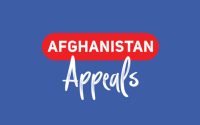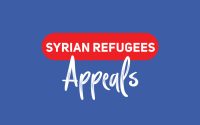Somalia has been grappling with a severe drought that has put over 2.9 million of its residents in a dire situation, facing acute food shortages. The crisis, unfolding in 2016 and 2017, saw rains failing across three consecutive seasons, drastically affecting crop yields and leading to a substantial loss of livestock. This drought not only devastated agricultural outputs but also triggered a critical water crisis, accelerating the outbreak of cholera with an estimated 32,000 cases reported in the first five months of 2017 alone.
The Dire Consequences of Drought
The impact of this prolonged drought has been catastrophic, with the UN Children’s Fund (UNICEF) predicting that 1.4 million children would require urgent treatment for severe malnutrition within 2017. By June of the same year, FEWS NET highlighted that approximately 2.9 million individuals were enduring an emergency situation due to the drought. International food aid reached 1.75 million people by March 2017, as documented by the UN Office for the Coordination of Humanitarian Affairs (OCHA).
The drought has also forced an estimated 1.1 million people to become internally displaced within Somalia, seeking refuge in urban centers like Mogadishu and Baidoa from primarily affected areas such as Bay, Lower Shabelle, and Sool. In total, the displacement crisis has escalated, with 2 million people estimated to have been displaced since the onset of 2017. This situation is further complicated by the return of 56,000 Somalians from Kenya’s Dadaab refugee camp through the UNHCR’s voluntary repatriation program, settling in regions such as Gedo, Bay, Lower Jubba, and Banaadir.
Historical Context of Drought in Somalia
Somalia’s struggle with drought is not new; the country has faced repeated cycles over the past 25 years. The 2010-2012 famine was particularly devastating, claiming the lives of approximately 260,000 people, half of whom were children under five. This tragedy surpassed the death toll of the 1992 famine, underscoring the critical need for early intervention and sustained humanitarian aid.
The 2011 drought brought the Horn of Africa to its knees, affecting over 13 million people. Despite improvements in conditions, Somalia continues to have one of the highest rates of child malnutrition and infant mortality globally. The UN Food and Agriculture Organization (FAO) emphasizes the importance of rapid and early response to such crises, highlighting the inefficiency of reacting only upon the declaration of famine.
Challenges and Aid Restrictions
The 2011 drought declaration in Somalia’s Southern Bakool and Lower Shabelle regions, controlled by the militant Islamist group al-Shabab, posed significant challenges for aid delivery. Al-Shabab’s denial of the crisis and restrictions on Western aid organizations severely hindered relief efforts. The famine eventually spread, with mortality rates reaching alarming levels, particularly among children under five in Lower Shabelle and Mogadishu.
Crisis Aid’s Response
Crisis Aid is committed to addressing the urgent needs of those affected by the drought in Somalia’s most remote areas. Our initiatives include supplying water tankers, distributing food parcels, and establishing irrigation channels for crops. The situation in Somalia calls for generous donations and global solidarity to mitigate the impact of this humanitarian crisis and provide hope to those facing unimaginable hardships.
Together, we can make a difference in the lives of those suffering from the drought in Somalia. Your support can help deliver essential supplies and contribute to long-term recovery efforts in one of the world’s most vulnerable regions.
Why Help Orphans?
And they give food, in spite of love for it, to the needy, the orphan, and the captive. (Saying), “We feed you only for the countenance of Allah. We don’t want from you either reward or gratitude. Indeed, we fear from our Lord a Day austere and distressful”. (The Noble Qur’an, 76:8-10)
An estimated 140 million children classified as orphans, 15.1 million have lost both parents.
A monthly regular donation is all it takes to make a change. £10, £20, £30 or any amount you desire can be setup as a regular monthly payment to provide them with all the love and care they need for a happy childhood.









